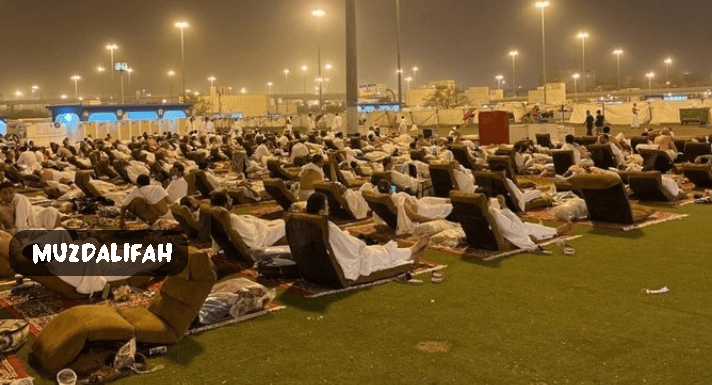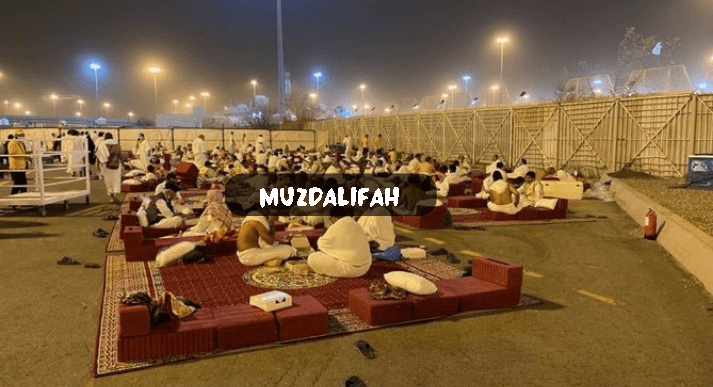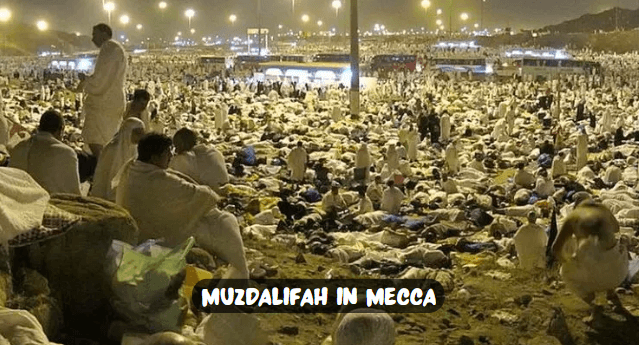Table Of Contents
Introduction
Muzdalifah is a significant site for pilgrims performing Hajj in Mecca, located between Mina and Mount Arafat. It holds immense spiritual importance as pilgrims spend a night here in prayer and reflection after standing at Arafat.
Muzdalifah holds significant historical importance in Islamic tradition. During the time of Prophet Mohammed, pilgrims would gather here after spending the day at Mount Arafat. It was a place for collective worship and rest under the night sky. The Prophet Mohammed instructed his followers to perform the Maghrib and Isha prayers together at Muzdalifah. He also emphasized the collection of pebbles for the ritual stoning at Jamarat, which symbolizes the rejection of evil.
This tradition continues to this day, reflecting the practices established by the Prophet. The communal aspect of Muzdalifah, where millions of pilgrims pray and reflect together, echoes the unity and equality preached by Prophet Mohammed
Details About Muzdalifah
- Existence and Importance: Muzdalifah is an open, level area where pilgrims collect pebbles for the stoning of the devil at Jamarat. It is mentioned in the Quran and is a place of peace and humility during Hajj.
- Travel Leisure Aspect: Spending time in Muzdalifah combines spiritual devotion with the unique experience of being part of one of the largest religious gatherings in the world, offering a profound travel and leisure experience.

PHOTO FROM: CANVA
What to Visit and Experience
- Gathering Pebbles: Collect pebbles for the ritual stoning at Jamarat.
- Open-Air Prayers: Engage in open-air prayers and reflections under the night sky.
- Overnight Stay: Experience the communal overnight stay with fellow pilgrims.
- Historical Significance: Learn about the historical and religious significance of Muzdalifah.
- Local Culture: Interact with fellow pilgrims from around the world, sharing stories and experiences.
Travel Leisure Experience
The stay in Muzdalifah, blending spiritual activities with communal living, offers a unique travel and leisure experience. The open-air prayers and overnight stay under the stars create a memorable part of the Hajj pilgrimage.

PHOTO FROM: CANVA
Table: Tourist Plan to Muzdalifah in Mecca
| Time | Activity |
| 4:00 PM | Depart from Arafat to Muzdalifah |
| 5:00 PM | Arrive at Muzdalifah |
| 5:15 PM | Collect pebbles for the stoning ritual |
| 6:00 PM | Engage in Maghrib and Isha prayers |
| 7:00 PM | Reflect on the significance of Muzdalifah |
| 8:00 PM | Dinner and rest |
| 9:00 PM | Overnight stay under the stars, interacting with fellow pilgrims |
| 4:00 AM | Perform Fajr prayer and prepare to leave for Mina |
Summary
Visiting Muzdalifah is an essential and spiritually enriching part of the Hajj pilgrimage. It provides a unique blend of spiritual activities and communal experiences, enhancing the travel and leisure aspect of this sacred journey.
You Should Also Know
1- What are the key rituals to perform at Muzdalifah during Hajj?
-
At Muzdalifah, pilgrims gather pebbles for the symbolic stoning of the devil, rest under the open sky, and offer prayers after sunset.
2- Why is Muzdalifah an important stop during Hajj?
-
Muzdalifah is significant because it serves as a location where pilgrims unite for reflection and spiritual renewal after leaving Arafat.
3- Are there specific rules for spending the night at Muzdalifah?
-
Pilgrims are required to spend part of the night at Muzdalifah and offer prayers before continuing their Hajj journey.
4-How do pilgrims travel from Arafat to Muzdalifah?
-
Pilgrims usually travel by foot, bus, or train from Arafat to Muzdalifah after sunset on the 9th day of Dhu al-Hijjah.
5-What is the significance of collecting pebbles at Muzdalifah?
-
Collecting pebbles at Muzdalifah is a key ritual for stoning the Jamarat, symbolizing the rejection of evil during Hajj.
6-Is there accommodation available at Muzdalifah?
-
No, pilgrims rest under the open sky at Muzdalifah, as part of the spiritual experience during Hajj.









